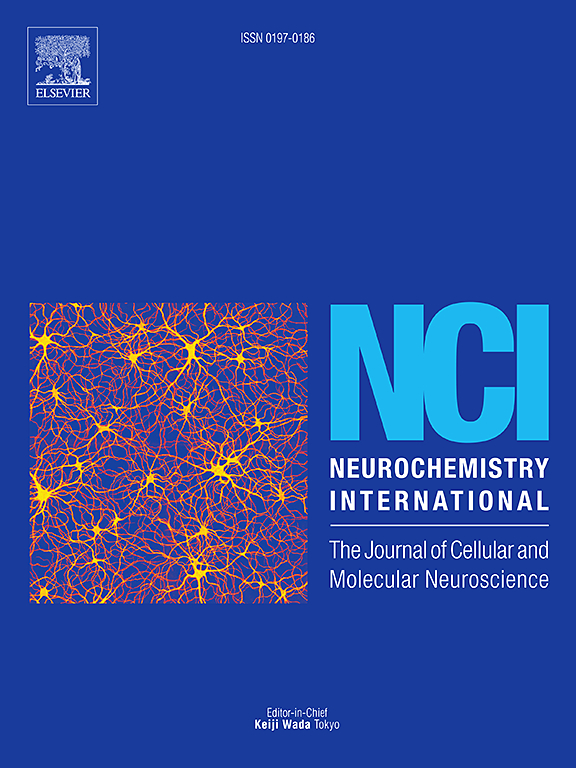神经发育和衰老中的 Ras、RhoA 和血管药理学。
IF 4.4
3区 医学
Q2 BIOCHEMISTRY & MOLECULAR BIOLOGY
引用次数: 0
摘要
小 GTP 酶 Ras、Rac 和 RhoA 是细胞功能的关键调节因子。它们还在细胞增殖和转化失调中发挥作用。已有多篇论文集中阐明了它们的作用和机制,包括在免疫系统病理学中的作用和机制。它们在神经系统相关疾病、神经变性和神经发育中的功能以及作为这两种病症的药物靶点的潜力也在不断涌现。越来越多的观察结果表明,这些病理现象可能与 Ras 超家族成员(尤其是 Ras、Rho 和 Rac 异构体)及其信号通路成分的信号激活(或抑制)有关。它们所携带的种系(或胚胎)突变是神经发育疾病的罪魁祸首,如 RAS 病、自闭症谱系障碍和扩张型心肌病。在衰老过程中,它们会促进神经退行性疾病的发生,Rho GTPase 在这些疾病的药理学中占有重要地位,阿尔茨海默病(AD)就是一例。值得注意的是,已观察到具有抗 AD 活性的药物,尤其是那些涉及心血管系统的药物,都与 RhoA 信号转导以及大脑发育和衰老过程中的脑血管有关。这使我们认为,抗 AD 药物可以为神经发育疾病(包括小儿低级别胶质瘤)的药理学提供信息。与RhoA有关的神经发育障碍,如自闭症,也与血管系统有关,因此可能成为与血管系统有关的药物的靶点。本文章由计算机程序翻译,如有差异,请以英文原文为准。
Ras, RhoA, and vascular pharmacology in neurodevelopment and aging
Small GTPases Ras, Rac, and RhoA are crucial regulators of cellular functions. They also act in dysregulated cell proliferation and transformation. Multiple publications have focused on illuminating their roles and mechanisms, including in immune system pathologies. Their functions in neurology-related diseases, neurodegeneration and neurodevelopment, are also emerging, as well as their potential as pharmacological targets in both pathologies. Observations increasingly suggest that these pathologies may relate to activation (or suppression) of signaling by members of the Ras superfamily, especially Ras, Rho, and Rac isoforms, and components of their signaling pathways. Germline (or embryonic) mutations that they harbor are responsible for neurodevelopmental disorders, such as RASopathies, autism spectrum disorder, and dilated cardiomyopathy. In aging, they promote neurodegenerative diseases, with Rho GTPase featuring in their pharmacology, as in the case of Alzheimer's disease (AD). Significantly, drugs with observed anti-AD activity, particularly those involved in cardiovascular systems, are associated with the RhoA signaling, as well as cerebral vasculature in brain development and aging. This leads us to suggest that anti-AD drugs could inform neurodevelopmental disorders, including pediatric low-grade gliomas pharmacology. Neurodevelopmental disorders associated with RhoA, like autism, are also connected with vascular systems, thus could be targets of vascular system-connected drugs.
求助全文
通过发布文献求助,成功后即可免费获取论文全文。
去求助
来源期刊

Neurochemistry international
医学-神经科学
CiteScore
8.40
自引率
2.40%
发文量
128
审稿时长
37 days
期刊介绍:
Neurochemistry International is devoted to the rapid publication of outstanding original articles and timely reviews in neurochemistry. Manuscripts on a broad range of topics will be considered, including molecular and cellular neurochemistry, neuropharmacology and genetic aspects of CNS function, neuroimmunology, metabolism as well as the neurochemistry of neurological and psychiatric disorders of the CNS.
 求助内容:
求助内容: 应助结果提醒方式:
应助结果提醒方式:


